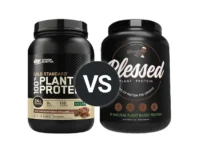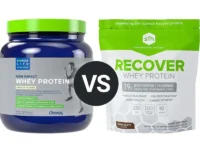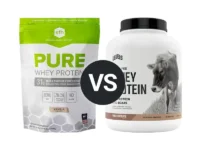Knowledge BaseYou're Questions Answered
What is raw protein powder and how is it made?
Raw protein powder is a type of protein supplement made from whole food sources, such as sprouted grains, seeds, and nuts. It is not processed using high heat, chemicals, or synthetic additives, which helps to preserve the nutrient content of the raw ingredients. Raw protein powders are typically plant-based and can be suitable for those following a vegan or vegetarian diet.
The process of making raw protein powder involves sprouting the grains, seeds, or nuts, which involves soaking them in water until they begin to sprout. This process breaks down complex carbohydrates and proteins into simpler components, which are easier to digest and absorb. The sprouted grains, seeds, or nuts are then dried and ground into a powder.
One of the benefits of raw protein powder is that it contains a variety of nutrients, including fiber, vitamins, minerals, and antioxidants, which may be lost in processed protein powders. Additionally, the sprouting process can increase the availability of nutrients and improve digestibility.
While there is limited research specifically on raw protein powders, studies have shown that sprouting can improve the nutrient content and digestibility of grains, seeds, and nuts (1). Raw protein powders may also have a lower glycemic index than processed protein powders, which could be beneficial for individuals with diabetes or blood sugar imbalances (2).
Overall, raw protein powder can be a nutritious and beneficial option for individuals looking to incorporate a minimally processed, whole food-based protein supplement into their diet.
- Ozcan, T., & Polat, E. S. (2020). Effects of sprouting on the nutritional and bio-functional properties of grains and seeds: A review. Journal of food science and technology, 57(8), 2653-2663.
- Hlebowicz, J., Lindstedt, S., Björgell, O., & Höglund, P. (2009). Effects of commercial whey protein isolate on blood glucose levels in healthy subjects: a pilot study. European journal of clinical nutrition, 63(10), 1264-1266.

Your Answer
We are a participant in the Amazon Services LLC Associates Program, an affiliate advertising program designed to provide a means for us to earn fees by linking to Amazon.com and affiliated sites.


